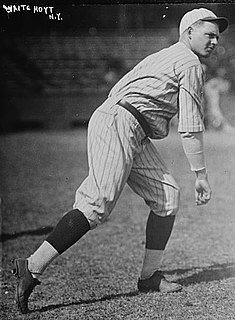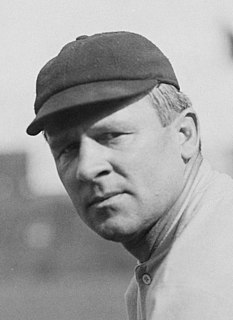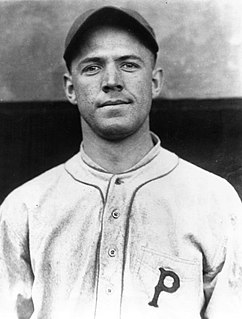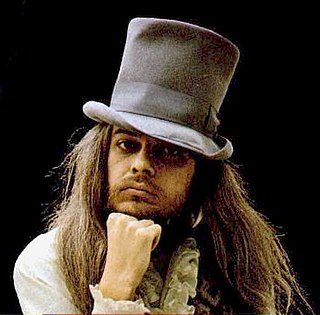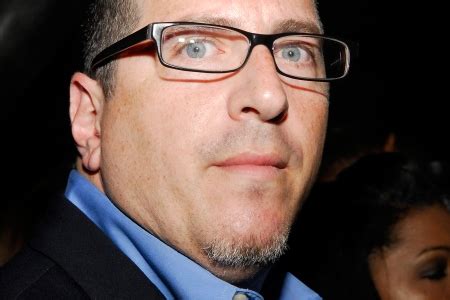A Quote by Waite Hoyt
I was so naive in radio technique that I knew nothing about timing. I would write pages on Honus Wagner and then get only half through by the time the show ended. I eventually learned, but there was nobody there to school me.
Related Quotes
Early in my career, when I was still learning about politics, when I was wet behind the ears and naive... Up until the time I started radio show, nobody that knew me ever thought I was a hatemonger or a racist or homophobic or sexist or bigoted or any of that. Nobody. There wasn't anybody. Six months after being on the radio with this program, I'd become all of that. And I remember.
I name (Honus) Wagner first on my list, not only because he was a great batting champion and base-runner, and also baseball's foremost shortstop, but because Honus (Wagner) could have been first at any other position, with the possible exception of pitcher. In all my career, I never saw such a versatile player.
One day he [Wagner] was batting against a young pitcher who had just come into the league. The catcher was a kid, too . The pitcher threw Honus a curve ball, and he swung at it and missed and fell down. Looked helpless as a robin. I was kind of surprised, but the guy sitting next to me poked me in the ribs and said, 'Watch this next one.' Those kids figured they had the old man's weakness, you see, and served him up the same dish - as he knew they would. Well, Honus hit a line drive so hard the fence in left field went back and forth for five minutes.
I started doing a half-hour Sunday night talk show on college radio station KUNV. That excited me more than anything I'd ever done. I went through the Yellow Pages to find people who seemed interesting. I'd goof on these people, but they were so excited to be on the radio that they didn't even notice.
The thought of people in this day and age sitting down to listen to a radio variety show on Saturday evening is rather implausible and was even more so in 1974 when we started “A Prairie Home Companion.” Thank goodness Minnesota Public Radio was too poor to afford good advice or the show never would've got on the air. We only did it because we knew it would be fun to do. It was a dumb idea. I wish I knew how to be that dumb again.
I ended up in college by accident. Everything in my life, I ended up in by accident. I was down south in this high school doing whatever. It could just not contain me. I quit school and took off and traveled around. Nobody knew where I was I just couldn't handle it anymore. It was a big scandal, I was gone. I left.
To disguise nothing, to conceal nothing, to write about those things that are closest to our pain, our happiness; to write about our sexual clumsiness, the agonies of Tantalus, the depth of our discouragement-what we glimpse in our dreams-our despair. To write about the foolish agonies of anxiety, the refreshment of our strength when these are ended; to write about our painful search for self, jeopardized by a stranger in the post office, a half-seen face in a train window, to write about the continents and populations of our dreams, about love and death, good and evil, the end of the world.
My first job was a show called The Others. I had, like, three lines. Julianne Nicholson was in it, and Gabriel [Macht]. I remember Gabriel wasn't there the day I was, but he sent a note, because he went to Carnegie Mellon as well, so we knew each other a little bit through that, and he was so sweet and generous. It was meant to be a recurring role that would evolve on the show, but the show only lasted a little while and I ended up only doing that one episode.
It's kind of a mysterious process, but something will catch my attention, and I'll make a note about it. I may even write a few pages about it, and then I'll put it aside, but I'll sort of keep it in mind. Then as time goes on, other things will gather to it as if it's a magnet, almost, and eventually, there's enough to make the story.
I have always been involved with radio, whether it was as an artist talking to radio about my own songs, or as a promotion man at Def Jam to working records through my company. In 2000 I was asked to host a show in Norfolk VA and through that show I was then asked to host the morning show in Detroit. The concept of the show was around Hip Hop. We were active in the community and we wanted to do a local show that had a hip hop feel around it.
